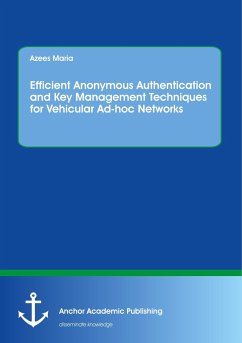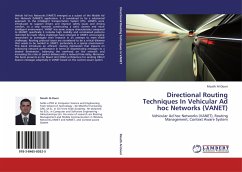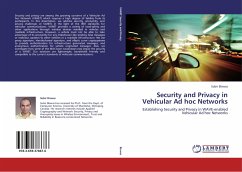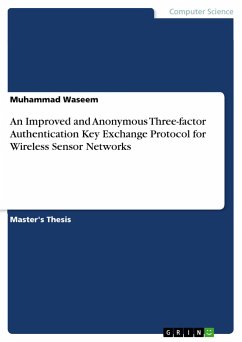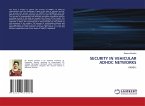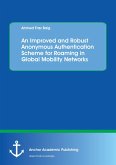The Vehicular ad-hoc network (VANET) is an important communication paradigm in modern-day transport systems for exchanging live messages regarding traffic congestion, weather conditions, road conditions, and targeted location-based advertisements to improve the driving comfort. In such environments, authentication and privacy are two important challenges that need to be addressed. There are many existing works to provide authentication and privacy in VANETs. However, most of the existing authentication schemes are suffering from high computational cost during authentication and high communication cost during secure key distribution to a group of vehicles. Moreover, in many existing schemes, there is no conditional tracking mechanism available to revoke the misbehaving vehicles from the VANET system.
In order to overcome these issues, four new approaches have been developed in this research work: Firstly, a dual authentication scheme is developed to provide a high level of security on the vehicle side to effectively prevent the unauthorized vehicles entering into the VANET. Moreover, a dual group key management scheme is developed to efficiently distribute a group key to a group of users and to update such group keys during the users' join and leave operations.
Secondly, in order to preserve the privacy of vehicle users, a computationally efficient privacy preserving anonymous authentication scheme (CPAV) is developed to anonymously authenticate the vehicle users based on the use of anonymous certificates and signatures. Moreover, a conditional tracking mechanism is introduced to trace the real identity of vehicles and revoke them from VANET in the case of dispute.
Thirdly, an efficient anonymous authentication scheme to preserve the privacy of RSUs is proposed in this research work: Each authenticated vehicle is required to authenticate the RSUs in an anonymous manner before communicating with it because each RSU provides the location based safety information (LBSI) to all authenticated vehicles when they are entering its region. By doing this, each RSU provides the knowledge to vehicle users about the obstacles within its coverage area.
Finally, a computationally efficient group key distribution (CEKD) scheme for secure group communication is proposed in this research work based on bilinear pairing.
In order to overcome these issues, four new approaches have been developed in this research work: Firstly, a dual authentication scheme is developed to provide a high level of security on the vehicle side to effectively prevent the unauthorized vehicles entering into the VANET. Moreover, a dual group key management scheme is developed to efficiently distribute a group key to a group of users and to update such group keys during the users' join and leave operations.
Secondly, in order to preserve the privacy of vehicle users, a computationally efficient privacy preserving anonymous authentication scheme (CPAV) is developed to anonymously authenticate the vehicle users based on the use of anonymous certificates and signatures. Moreover, a conditional tracking mechanism is introduced to trace the real identity of vehicles and revoke them from VANET in the case of dispute.
Thirdly, an efficient anonymous authentication scheme to preserve the privacy of RSUs is proposed in this research work: Each authenticated vehicle is required to authenticate the RSUs in an anonymous manner before communicating with it because each RSU provides the location based safety information (LBSI) to all authenticated vehicles when they are entering its region. By doing this, each RSU provides the knowledge to vehicle users about the obstacles within its coverage area.
Finally, a computationally efficient group key distribution (CEKD) scheme for secure group communication is proposed in this research work based on bilinear pairing.

